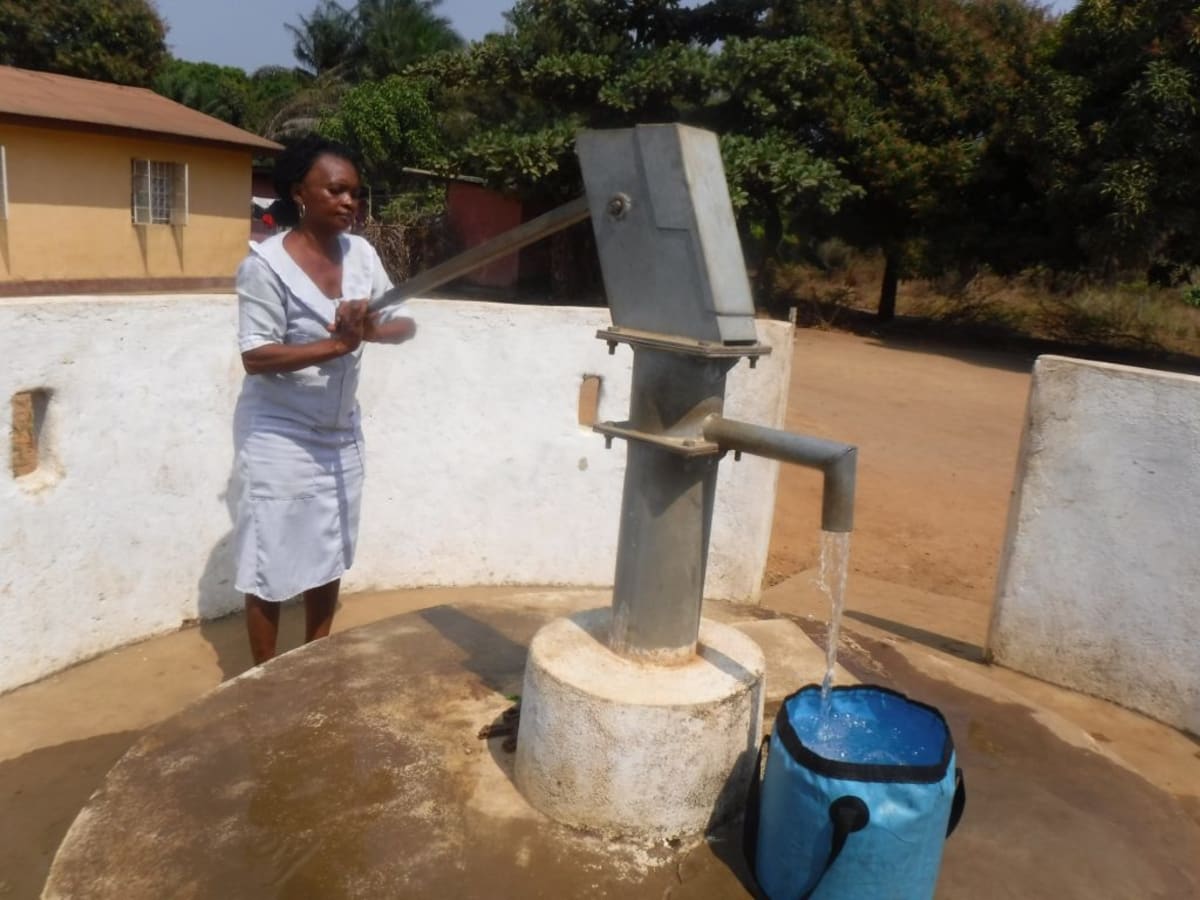Gbaneh Lol Peripheral Health Unit (PHU) serves ten surrounding communities (approximately 150 people), primarily with the birthing of community children, though it also encounters other acute health issues. The communities benefit greatly from the operation of the clinic, which is a literal lifesaver during the night hours.
When the clinic's well worked, nurses were able to fetch water for their needs at any time of day. However, with the local water table having been lowered due to deforestation and climate change, their well regularly dries out. This lack of water endangers the lives of the clinic's patients: adult, newborn, and unborn.
"The lack of water supply for the clinic complicates child delivery, especially when it is an emergency case," said Zainab Taylor (48), the clinic's head nurse. "As a nurse, water is just as important as the medications we use. Lacking either one can and does create a crisis that might cost someone's life."
For now, since the center's well is dry, nurses have asked a nearby community member for access to his well. However, this alternate well is unprotected and unmonitored, which means the patients at the clinic are now drinking contaminated water when they're already in a delicate state.
"The lack of adequate water also affects the sanitation and hygiene part of our treatment," Zainab said. "[The] latrines are not cleaned on a daily basis, which increases the chances of contracting dangerous diseases."
The community shares a close relationship with the nurses of the clinic. Many newborns within the community have been named after the nurses who helped bring them into the world, an honor that is not bestowed on just anybody. Nurses are also invited to naming ceremonies, birthdays, weddings, and all other functions in the community.
However, the lack of continuous water means patients are taken to other centers where the availability of water is not an issue. Sometimes, this delay can be deadly.
The population of the community is only growing, which will put added strain on the clinic and its water supply. This means the time to install a new water project to meet the increasing demand and prevent more lives lost is now.
Here’s what we’re going to do about it:
Well Rehabilitation
The well marked for this overhaul is dry for a few months every year and needs major work to supply adequate, clean water to the community year-round. The pump will be removed, and a hand auger will be lowered inside and powered by a drill team. This hand auger will allow the team to drill several meters deeper to hit a sufficient water column that will ensure the well supplies water throughout all seasons.
As the team drills, casing will be installed, transforming the bottom of this hand-dug well into a borehole. PVC piping will connect this lower system directly to the pump, a construction that we know will also improve the quality of water.
Once this plan is implemented, everyone within the community will have access to safe drinking water in both quality and quantity, even through the dry months.
Hygiene and Sanitation Training
There will be hygiene and sanitation training sessions offered for three days in a row.
After our visit, the hygiene and sanitation trainer decided it would be best to teach community members how to build a tippy tap (a hand-washing station built with a jerrycan, string, and sticks). They will use these tippy taps for handwashing demonstrations, and will also teach about other tools like dish racks and the importance of properly penning in animals.
These trainings will also strengthen the water user committee that manages and maintains this well. They enforce proper behavior and report to us whenever they need our help solving a serious problem, like a pump breakdown.

 Borehole Well and Hand Pump
Borehole Well and Hand Pump































